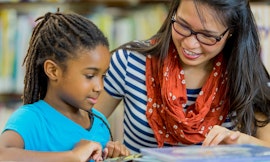Events

Concerts

Dance

Jewish Interest

Kids & Family Events

Literary Readings

Musical Theater

Special Events

Talks

Tours

Travel

Missed an Event? Watch Now!
Featured Events at 92NY
Classes

Ceramics
.jpg?fit=crop&w=220&h=132&auto=format)
Continuing Education

Dance

Fine Art & Design

Health, Fitness & Sports

Jewelry

Jewish Life & Learning

Kids & Family

Literature & Writing

Music

Musical Theater

Travel
Featured Classes at 92NY
Program Areas

Afterschool
Enrichment for Grades K-5

Belfer Center
Innovation & Social Impact

Camps
Summer experiences for ages 3-18

Collective
Membership group for 20-30 somethings

Friends of 92NY
Our supporters

Himan Brown
60+ program

Jewish Life
Jewish family experiences

Lipschultz Parenting Center
Programs for infants & toddlers

May Center
Health & wellness

Nexus
Membership group for adults in their 50s & 60s

Nursery School
92NY’s renowned preschool program

Residence
Housing for students and interns

Roundtable
The online classroom of 92NY
92NY at a Glance
92NY at a Glance
Health & Fitness
Dance
Art
Talks
Concerts
Innovation & Social Impact
Jewish Life
Music
Musical Theater
Archives
92NY Programs for All Ages
Early Childhood
Kids & Family
Adults
Seniors
- About 92NY
- Center for Culture & Arts
- Center for Community
- Bronfman Center for Jewish Life
- Center for Children & Family
- Belfer Center for Innovation & Social Impact

The 92nd Street Y, New York is a world-class cultural and community center where people all over the world connect through culture, arts, entertainment and conversation. For over 150 years, we have harnessed the power of arts and ideas to enrich, enlighten and change lives, and the power of community to repair the world.

The 92NY Center for Culture & Arts, a historic cornerstone of New York’s cultural landscape, continues to define the city’s creative pulse. With its unmatched talks, world-class concerts, innovative dance, literary events, and dynamic arts education, it remains a vital force in global culture.

In a world where community is more essential than ever, The 92nd Street Y has made it the cornerstone of its mission for 150 years. Today, our community stretches beyond borders, connecting individuals from every corner of the globe. We embrace people of all faiths, backgrounds, and beliefs, creating a vibrant, inclusive space where generations come together and bonds are formed.
- By Interest:
- Events
- Adult Classes
- Derekh Torah
(Immersion Course)
- Jewish Content
(Videos, Conversations, Sermons, and more)
- The Elie Weisel Living Archive
- By Age:
- Shababa
- Jewish Education for Kids
(ATiD)
- Chaverut BBYO
(Jewish Teen Program)
- Adult Classes

The 92NY Bronfman Center for Jewish Life is dedicated to deepening Jewish identity through the pursuit of knowledge, the celebration of culture, and engagement with Israel.
- Camps
- Musical Theater
- Parenting Center
- Sports, Gymnastics & Swim
- Art Center
- School of Dance
- School of Music
- Young Writers Workshop
(Creative writing classes for teens)
- Nursery School
- Jewish Family Programs
- Private Parties
- Afterschool Program
- School Engagement in the Arts

92NY’s Center for Children and Family provides an exceptional array of programs designed to support children at every stage of their development.

The Belfer Center for Innovation & Social Impact invests in community builders who turn individual generosity into collective energy. By sharing ideas, nurturing leaders, and scaling what works, we help everyday changemakers forge stronger connections, illuminate new paths, and turn local sparks into bright, enduring beacons of positive social progress.
Suggestions
No search results found
Make sure words are spelled correctly.
Use less specific or different keywords.
Featured Events Today at 92NY
Suggestions
Top Classes

Lindy Hop: Zero 2 Hero
(Beginner Swing Dancing)

DEL Culturally Responsive Pedagogy in Dance
Education
Top Pages

Harkness School of Dance Summer
(Age 5-7)

Harkness School of Dance Summer
(Age 8-11)
No search results found
Make sure words are spelled correctly.
Use less specific or different keywords.
Featured Events Today at 92NY
-
Events
 Concerts
Concerts Dance
Dance Jewish Interest
Jewish Interest Kids & Family Events
Kids & Family Events Literary Readings
Literary Readings Musical Theater
Musical Theater Special Events
Special Events Talks
Talks Tours
Tours Travel
Travel Missed an Event? Watch Now!Featured Events at 92NY)
Missed an Event? Watch Now!Featured Events at 92NY) -
Classes
-
Program Areas
 AfterschoolEnrichment for Grades K-5
AfterschoolEnrichment for Grades K-5 Belfer CenterInnovation & Social Impact
Belfer CenterInnovation & Social Impact CampsSummer experiences for ages 3-18
CampsSummer experiences for ages 3-18 CollectiveMembership group for 20-30 somethings
CollectiveMembership group for 20-30 somethings Friends of 92NYOur supporters
Friends of 92NYOur supporters Himan Brown60+ program
Himan Brown60+ program Jewish LifeJewish family experiences
Jewish LifeJewish family experiences Lipschultz Parenting CenterPrograms for infants & toddlers
Lipschultz Parenting CenterPrograms for infants & toddlers May CenterHealth & wellness
May CenterHealth & wellness NexusMembership group for adults in their 50s & 60s
NexusMembership group for adults in their 50s & 60s Nursery School92NY’s renowned preschool program
Nursery School92NY’s renowned preschool program ResidenceHousing for students and interns
ResidenceHousing for students and interns RoundtableThe online classroom of 92NY
RoundtableThe online classroom of 92NY -
92NY at a GlanceHealth & FitnessDanceArtTalksConcertsInnovation & Social ImpactJewish LifeMusicMusical TheaterArchivesEarly ChildhoodKids & FamilyAdultsSeniors
-
-
- By Interest:
- Events
- Adult Classes
- Derekh Torah
(Immersion Course)
- Jewish Content
(Videos, Conversations, Sermons, and more)
- The Elie Weisel Living Archive
- By Age:
- Shababa
- Jewish Education for Kids
(ATiD)
- Chaverut BBYO
(Jewish Teen Program)
- Adult Classes























